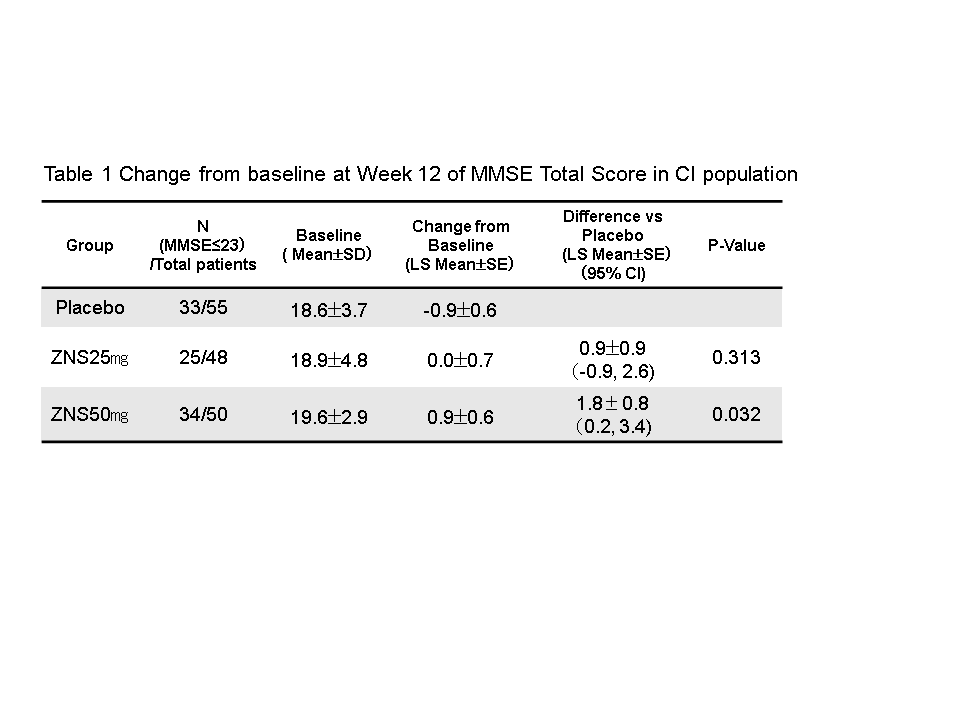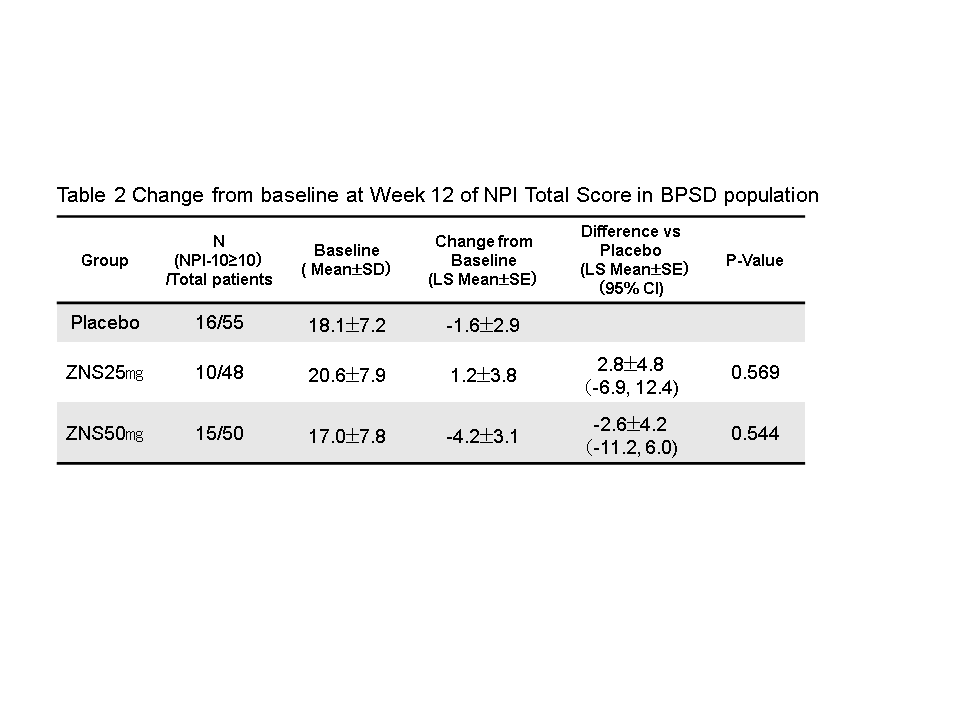Session Information
Date: Wednesday, June 7, 2017
Session Title: Cognitive Disorders
Session Time: 1:15pm-2:45pm
Location: Exhibit Hall C
Objective: Based on the results of a phase 2 study to evaluate the efficacy of zonisamide in improving parkinsonism accompanying dementia with Lewy Bodies (DLB), we conducted a post-hoc analysis of the effect of zonisamide on cognitive function in patients with cognitive impairment (CI population) and on BPSD in those with concurrent BPSD (BPSD population).
Background: DLB is one of the phenotypes of Lewy body disease. Levodopa is the only drug recommended for motor symptoms accompanying DLB1), however its dose should be limited to avoid appearance of psychiatric symptoms1), so the therapeutic balance between motor symptoms and psychiatric symptoms is needed on DLB.
Methods: CI population is defined as all patients from mITT population with baseline MMSE total score ≤ 23, and BPSD population is defined as those with baseline NPI total score ≥ 10. Changes from baseline (LS mean±SE) at Week12 of MMSE total score using CI population and NPI total score using BPSD population were calculated by treatment group [placebo, 25 or 50 mg zonisamide], and were compared between the zonisamide- and placebo-treatment groups. In addition the correlation analysis using CI or NPI population was performed between the changes of MMSE or NPI total score and UPDRS part III total score.
Results: Of a total of 153 patients enrolled in the study, 92 patients were included in CI population and 41 patients in BPSD population. In CI population, the change from baseline at Week12 of MMSE total score in 50 mg zonisamide was significantly greater than placebo (Table 1). In BPSD population, the changes from baseline at Week12 of NPI total score in both doses of zonisamide were not significantly different from placebo (Table 2). The change of neither MMSE nor NPI total score significantly correlated with that of UPDRS part III total score.
Conclusions: The results of this post-hoc analysis suggested that zonisamide improves cognitive impairment and does not aggravate BPSD. Since this was merely a post-hoc analysis, further studies are needed to better characterize the effect of zonisamide on those symptoms.
References: 1) McKeith IG, et al. Neurology 2005; 65: 1863-1872.
To cite this abstract in AMA style:
M. Murata, T. Odawara, O. Konishi, M. Nakamura, K. Kosaka. Effects of zonisamide, an anti-parkinsonian drug, on cognition and BPSD in DLB patients: A post-hoc analysis of DLB Ph2 study [abstract]. Mov Disord. 2017; 32 (suppl 2). https://www.mdsabstracts.org/abstract/effects-of-zonisamide-an-anti-parkinsonian-drug-on-cognition-and-bpsd-in-dlb-patients-a-post-hoc-analysis-of-dlb-ph2-study/. Accessed July 18, 2025.« Back to 2017 International Congress
MDS Abstracts - https://www.mdsabstracts.org/abstract/effects-of-zonisamide-an-anti-parkinsonian-drug-on-cognition-and-bpsd-in-dlb-patients-a-post-hoc-analysis-of-dlb-ph2-study/


